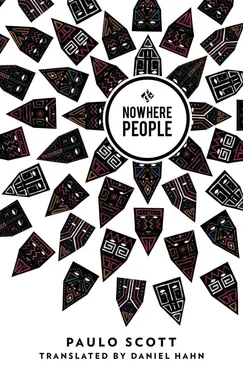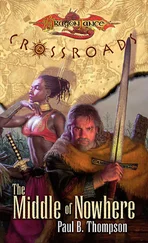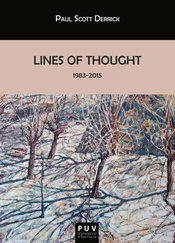mosaic
She chooses the name, and two days later he is born.
It’s much more difficult than Maína had imagined, she will need clinical monitoring, other consultations like this one, this fifth consultation since Donato was born. She can barely control her impatience. Her difficulty communicating with the doctor, the same woman with whom Maína had been so cooperative at first, the doctor who, after asking Maína to turn off the radio cassette player, writes puerperal condition in large block letters on a little consultation slip and leaves it on the table for her. And this, like all the gestures that came before it, takes no account of the dread that Maína felt for the first few hours of the child’s life: the revulsion she felt as she held him in her arms. There has to be some other reason besides the expulsion of the placenta and the reaction this provokes in the nervous system, in the pituitary-hypothalamus axis, because of the sudden drop in hormone levels. This, too, was noted down, but not on the same bit of paper, not in today’s consultation. Nothing can explain Maína’s desire to harm the baby. Every single day: probationary days. Months waiting for the recontraction of the uterus. In search of moderation. Paying no attention to the doctor, she presses her son to her chest and tells him in Guarani that it’s time to find a way out. She says goodbye, knowing how hard the doctor is struggling to get over her ineptitude for attending to indigenous girls. If she could, she would never see her again. In the car park the driver grants her permission when Maína says she’s going to the ice cream place. ‘Fifteen minutes’ (in this space before meeting up with the FUNAI official in order to register the birth). She crosses the street, walks up to the entrance of the shop, climbs the steps. She goes straight over to the counter, shows the money she has brought (she is not a beggar), points to the tub of vanilla ice cream: one scoop, in a cone. She sits at the table by the little wall that separates the table area from the pavement; she has chosen the spot that any other customer would have chosen. She rearranges the baby in her lap. She smears his lips with the icy-cold mass. At this moment three schoolgirls make a noisy entrance. One of them stops, makes a face and approaches. Maína behaves as if to her equals and, as soon as they have introduced themselves, asks if the girl would like to hold Donato. The schoolgirl thanks her, says she isn’t really that good with children. Maína laughs and says, lying, that nothing could be easier than holding a child.
three
The fifth of March, nineteen ninety-two, the sky is the best shade of blue, the Minuane wind that usually sweeps across the Southwest at this time of year still hasn’t made its aggressive appearance, the leaves are holding onto a green that as yet shows no signs of tiring. The number of cars starts to dwindle until there are just a few on the road (and only heading towards Porto Alegre). Now there isn’t a single car passing the encampment, and the BR-116 is a landscape taken from a magazine, and for the first time since Donato was born Maína is able to hear the tranquillity without the interruption of engines and wheels putting tonnes and tonnes of pressure on the tarmac. She puts some trainers on her son (he needs to get used to them). They head towards the middle of the road to look out at the horizon. They play. If any vehicle were to approach they would hear the sound from kilometres away. The little boy moves away from her hand and from one moment to the next, without any help, and as he has never done before, he runs off towards the south, runs until he feels he’s too far from his mother. They will stay there several minutes. Perhaps no one will tell them that a lorry carrying dangerous chemicals has overturned at the exit to one of the bridges further up and the highway police have had to stop the traffic in both directions. And she softens as she watches him: he cannot help but contrast with that damn horizon.
honour words
From the outset, it didn’t take him long to learn that when you’re dealing with squats you mustn’t draw attention to yourself — exactly the opposite of what Rener did. Interviews, photos here and there, the old Robin Hood weakness. It wasn’t hard to find her, it wasn’t hard to work out who she was; even in a city where nobody is interested in finding out who you are. Another valuable squatter rule that Paulo learned was to choose buildings that don’t create problems: a two-room council flat was his favourite kind of lead. Rener, however, wanted confrontation. She really wanted it till she found it. The Lebanese men had no trouble tracking her down, inviting her to take a walk and putting her in a private cell (and this time it was no longer just the brothers who had kicked her out of the occupied house but an older cousin, well-connected in the circles that the London police call the city’s Really Fucked Bits). They didn’t go so far as to torture her, they kept her in a perfectly soundproofed room just to be safe, until they got to Paulo under forty-eight hours later. There was no beating, they did little more than push him around and handcuff him. He had to hand over his passport, his papers, all his documents from Brazil. They set terms for bail, that was what they said. Bail, reasonable and feasible, so as not to have to end his life and the life of his black friend, who came this close to being raped, she could have been, and still could be, since she was an angel fallen from heaven, that was what they said. Paulo only got to talk to her for twenty minutes before they were separated, he paid what they asked for, he used up all his savings and was left still owing them a thousand five hundred pounds. There would be no problem setting up an instalment plan, that was what they said, give him the chance to pay it off in instalments, with two per cent interest accruing per month until he had met the total cost of the life insurance, that was another phrase they used. The lives of a Brazilian guy and a French girl who looks like a model are worth a lot more than that, that’s what they said. At Paulo’s insistence, Rener returned to Paris; she never knew about the agreement he had made with the Lebanese men. He lied that he’d had to give them two thousand pounds, that was all, and that they would kill them if they didn’t leave London, which they had never said. They took his luxury squat in Chelsea and forbade him ever to occupy another property again. Paying rent to live somewhere would be good for him, it would give him a new sense of the market, that was that they said. This meant that Paulo had to get a job, that was when he started working at Whispers, a yuppie bar in Covent Garden, where the basic cocktail list included no fewer than a hundred and twenty alcoholic drinks, he came top in the selection process to fill two vacancies to work on the first-floor bar, he rented a room in some guy’s house in Kilburn. The guy works as a first mate with two other friends, taking sailing boats to and from the Greek islands, boats belonging to people who like to sail to a certain place and then don’t have the patience or the time to sail back. The house is always empty, it’s modern, and it has a private patio that is completely grassed over. The money he takes home from Whispers is great and his customers include the most beautiful girls in Covent Garden, much better than the ones at Sol. Paradise for any Brazilian, or rather for anyone at all in his early twenties who wants to work in London, were it not for the constant pressure from the Lebanese men who would show up at the bar once a week asking for free drinks and constantly announcing new additions to the total amount owed. In the movies, in books, in comics, the hero always finds some way of getting the most brilliant revenge and escaping, leaving behind him the crushing defeat of his enemies, and yet, however many nights he spends wide awake thinking, he has never been able to come up with a way out. Getting hold of a new passport at the Brazilian consulate, asking his parents for money, or one of his acquaintances, and taking off completely on the quiet; that wasn’t for him. He is more paranoid than ever, he has hated himself.
Читать дальше












